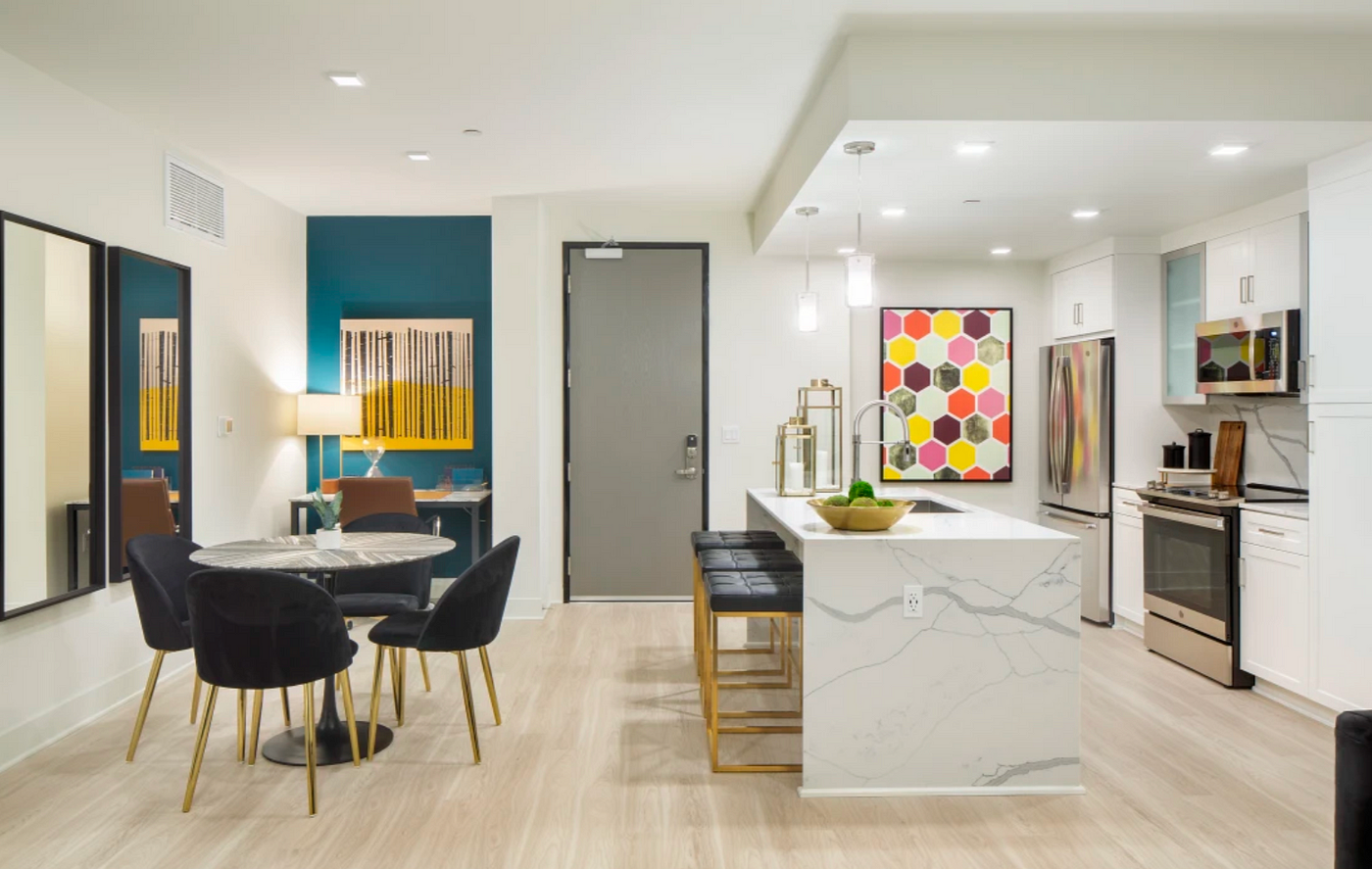Smart Building Technology: Giving Back Time to Residents
Find out why smart building residents are able to find a sense of comfort and routine through innovative amenities that help save time and improve quality of life.


The Q Variel
While amenities are often seen as selling points and the key to attracting prospective residents, the attraction truly lies in building owners’ and managers’ ability to provide convenience and peace of mind to residents. Amenities that facilitate this — whether they be tried and true classics, such as washer and dryers or modern innovations such as smart building technology — are both sought after and highly regarded, due to their ability to help residents discover a sense of routine and comfort.
The concept of routine itself is something that has been thrown into disarray over the past 18 months. The far-reaching effects of the pandemic have impacted virtually every aspect of modern life and resulted in a sense of uncertainty that permeated much of 2020 and the first half of 2021. Most apparent was the impact COVID-19 had on the workplace; instead of many workers’ morning routines that consisted of waking up early and preparing to commute to work, these individuals found themselves with much more available time in the mornings and spending time in a much more lenient digital workspace.
While spending more time at home undoubtedly comes with certain benefits, it should not come at the expense of establishing a routine. According to a Northwestern Medicine article, having a routine has been linked to lower stress levels as well as better overall health and sleeping habits. Further, a survey conducted by the University of Washington last year found that the impact of COVID-19 on our daily routines was having noticeably negative side effects on mental health, with over half of the 4,000 people surveyed reporting that they experienced feelings of depression, fear, and tension. Those surveyed also reported a significant decrease in physical activity due to the pandemic, a factor that has also been widely linked to depression and physical health issues.

The Q Variel
Even prior to the pandemic, one notable reason for people falling beginning to neglect routine was due to an overabundance of outlying tasks that simply took precedence. Purchasing groceries, for example, might take precedence over a morning workout due to a long work day ahead. The same can be said for walking pets, doing laundry, or performing household chores such as watering plants or cleaning.
COVID-19 only served to make some of these tasks more difficult and time consuming, with locations such as grocery stores only allowing in a handful of patrons at one time and other services closing entirely. Considering other factors such as the pandemic requiring many children to attend school from home, it stands to reason that routine habits such as morning yoga or going for walks began to fall to the wayside in lieu of other, more pressing tasks.
This is one of the issues that smart building technology like Alfred addresses, and therefore one of the reasons it has become such a priority for prospective tenants. Alfred technology does not simply offer services that make life easier; it empowers users to streamline their lives and grant them the time to focus on what’s important to them.

The Q Topanga
By enlisting one of Alfred’s home management professionals, issues that once stood in the way of routine no longer pose an inconvenience. This unique form of smart building technology allows residents to place tasks such as grocery shopping, laundry, home maintenance, and other errands and chores in the background while they focus on themselves. Residents living in buildings featuring Alfred technology have the opportunity to enjoy morning walks, time with loved ones, gym visits, and other routine pleasures while Alfred takes care of the rest.
The possibility of giving back time in resident’s day to enjoy the things they love most, is the reason buildings nationwide are implementing Alfred. The state-of-the-art lifestyle platform recently launched at Ella Parkside in Austin, the Q Variel and Topanga in Los Angeles, and is operating in 42 other cities across 2 countries. Residents in these buildings are now able to enjoy the wide-ranging benefits that accompany having a comfortable routine along with the myriad of other services Alfred provides, such as remote home management and regular social activities for building residents.
Smart building technology is truly the amenity of the future, and the quality of life improvements it brings are just one of many reasons why.